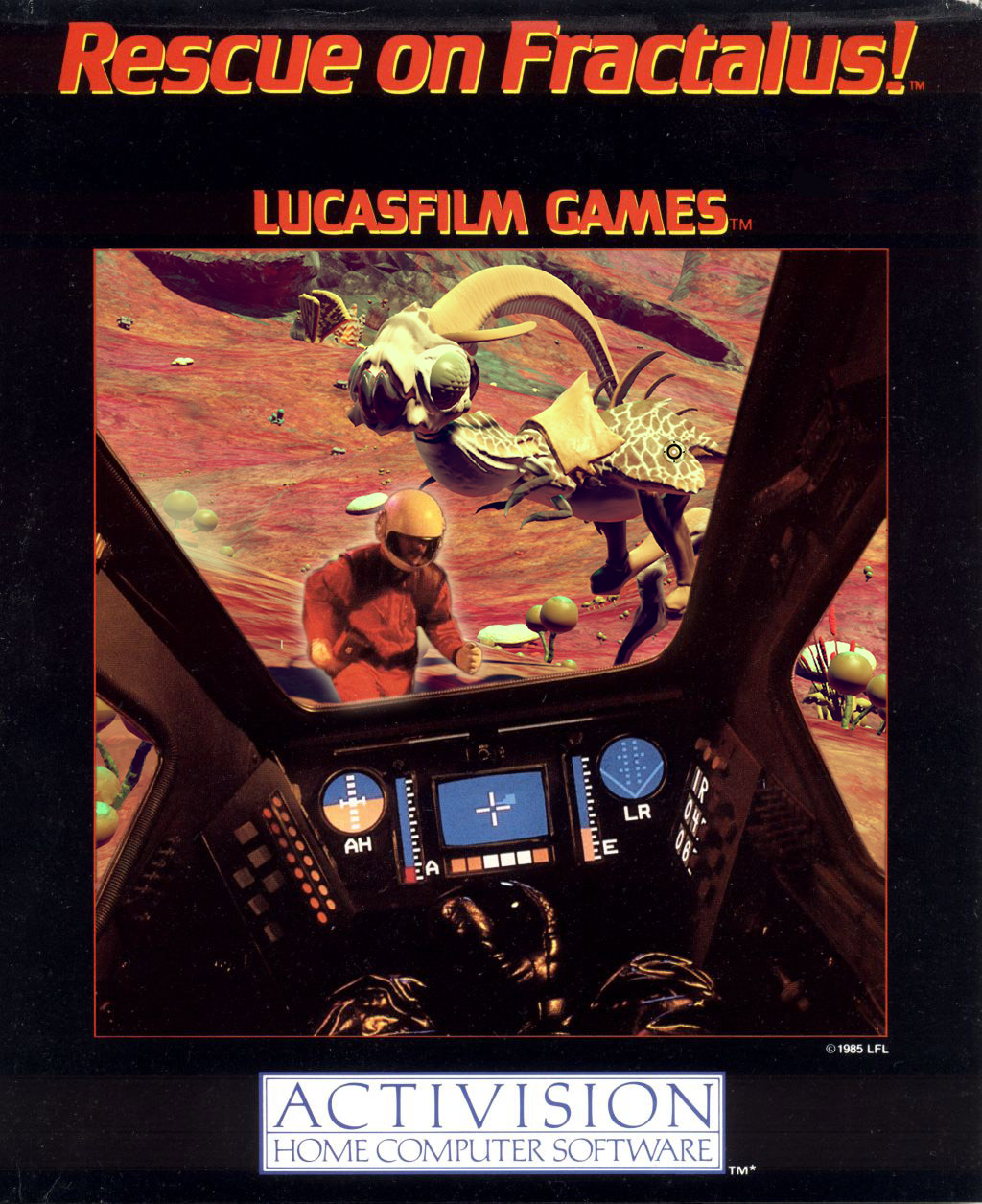Procedural Planetary Exploration Across the Decades

Regular readers are surely aware that I’m rather addicted to the space exploration game No Man’s Sky by Hello Games. I recently detailed my love for the title and gave an account of the high-end gaming PC I built specifically to play No Man’s Sky to the fullest, after having fallen in love with it on the PS4. And while there are those who may look askance at me for cherishing a game that’s not in any way retro, I make no apologies! Recently, however, a particular video comparison came to mind that I believe all of my readers can get behind.
No Man’s Sky provides a universe featuring over 18 quintillion planets to explore, which is made possible by utilizing procedural generation to create the nearly infinite number of worlds. It’s not the first game that has offered up procedural planet generation, however.
In 1985 Epyx released Rescue on Fractalus by Lucasfilm Games. It is a game that puts the player in the role of rescue pilot negotiating a hostile alien landscape in search of downed comrades. What made the game special was the mountainous procedural landscape through which the player would fly. This fractal landscape may appear extremely primitive to the modern eye but they were very impressive at the time, generated by the modest 1MHz, 8-bit CPUs of the day. I used to spend hours playing the game on my Apple IIe 30 years ago, imagining I had descended onto LV-426 in a bid to save my shipmates from the terrible fate of becoming alien host cocoons. It was pretty awesome.
Because of certain similarities between the two games and the 30+ year span of time separating them, I thought it would be interesting to set them side-by-side, so to speak, for a quick and dirty comparison. (Game maker Jeff Minter also invoked Rescue on Fractalus in his recent blog post about No Man’s Sky.)
Here I have captured a bit of gameplay of both Rescue on Fractalus and No Man’s Sky. For the former, I chose perhaps the best looking version of the game, the original Atari 8-bit release, which is running in an emulator (Altirra) on the PC. For the latter, I chose a planet in the system I am currently exploring (consisting of five planets and one moon) that features no flora or fauna to speak of, in order to present a more or less base No Man’s Sky planetary state for the comparison. (More verdant worlds are out there, however.) The elevations on the shown planet are about half as tall as the tallest I’ve seen in game. Rescue on Fractalus is being rendered in the Atari’s 160×96-pixel color graphics mode (obviously enlarged dramatically in the emulator) while No Man’s Sky is running at the 32-inch LCD’s native 1920×1080-pixels — 135 times more discrete pixels than the Atari is pushing.
What a difference three decades, on both the hardware and software front, make. Not surprisingly, bringing out Rescue on Fractalus for this video has me playing it again after all these years. Both of these games are definitely worth spending some time with.
UPDATE [11/15/2016]: I’ve just learned over at the RetroGamer mag forums that someone is working on a PC (Windows) remake of Rescue on Fractalus entitled Fractalus (video). Looks interesting — give it a whirl.